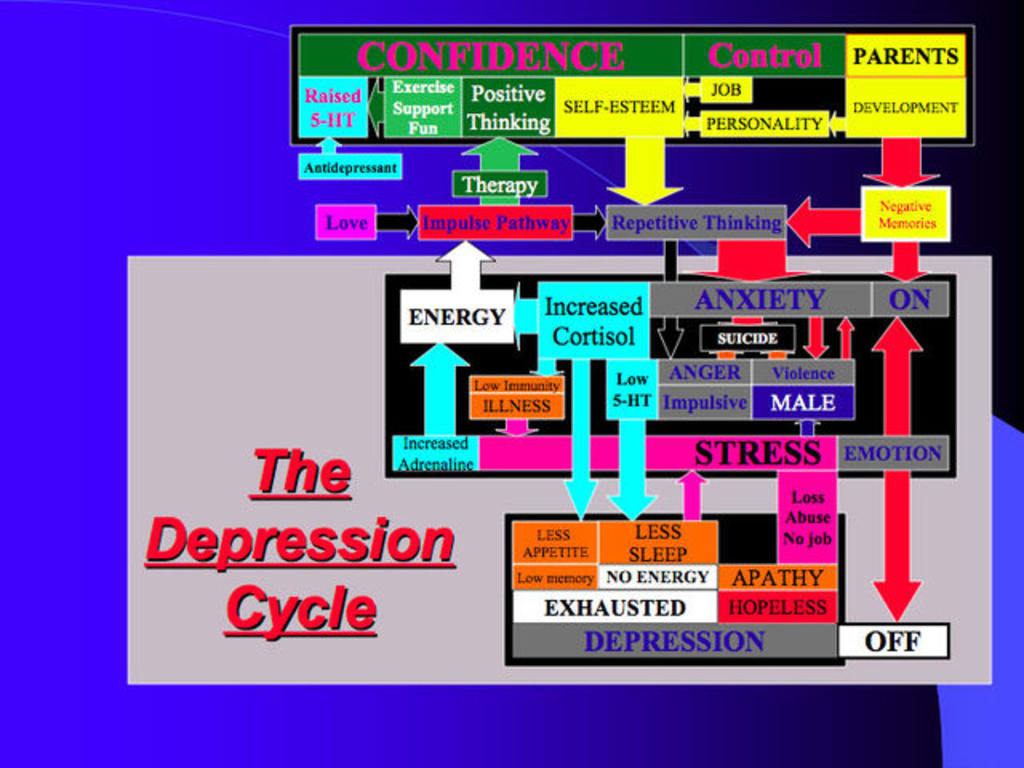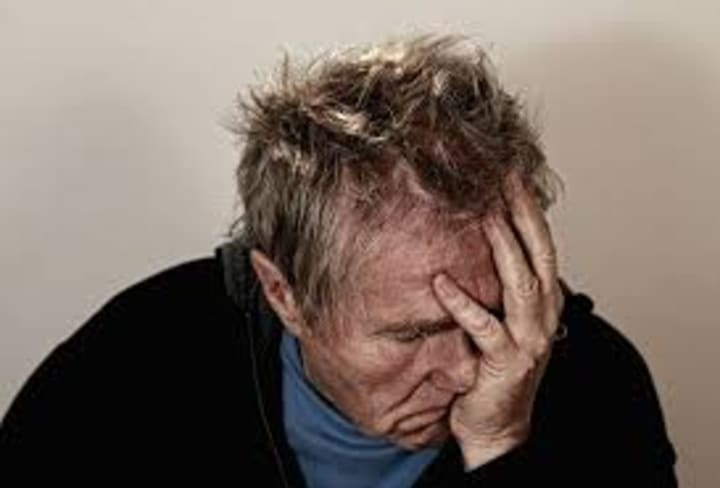Is Depression Taking A Toll On Your Intimate Relationship?
And What To Do About It

Depression is notorious for significantly disturbing intimate relationships, often straining the bond between couples. Here are some life examples illustrating how depression might take a toll on an intimate relationship:
1. Emotional Withdrawal
Jamie feels overwhelmed by persistent sadness and fatigue due to depression. They often retreat to their room and avoid engaging in conversations or activities with their partner, Alex. This emotional withdrawal makes Alex feel neglected and unloved, leading to frustration and loneliness.
2. Loss Of Interest In Intimacy
Maria has lost interest in physical intimacy due to her depression. She finds it difficult to connect with her partner, John, on a physical level. John feels rejected and starts questioning whether Maria still finds him attractive, causing tension and insecurity in their relationship.

3. Irritability And Mood Swings
Sam's depression manifests as irritability and frequent mood swings. They often snap at their partner, Taylor, over minor issues. Taylor feels like they're walking on eggshells, unsure of what might trigger Sam's anger. This constant tension leads to frequent arguments and a growing emotional distance between them.
4. Decreased Communication
During depressive episodes, Alex becomes less communicative and avoids discussing their feelings with their partner, Jordan. Jordan feels shut out and helpless, unsure of how to support Alex. The lack of communication creates a barrier between them, making it difficult to maintain a strong emotional connection.
5. Feelings Of Guilt And Burden
Emma feels guilty about her depression affecting her partner, Liam. She worries that she's a burden and that Liam deserves someone happier. This guilt leads Emma to withdraw further, creating a cycle of isolation and exacerbating her feelings of worthlessness.
6. Social Isolation
Because of his depression, Chris prefers to stay home and avoids social interactions. His partner, Sam, enjoys socializing and feels isolated when Chris declines invitations to social gatherings. Sam starts attending events alone, which creates a sense of living separate lives and erodes their sense of partnership.
7. Impact On Daily Functioning
Due to depression, Kelly struggles with maintaining daily routines, such as household chores or work responsibilities. Her partner, Jordan, ends up taking on most of the household duties. Jordan feels overwhelmed and resentful, leading to arguments about responsibilities and fairness in their relationship.
8. Financial Strain
Depression has made it difficult for Taylor to hold a steady job, leading to financial instability. Taylor's partner, Casey, is stressed about managing their finances alone and feels pressured to support both of them. The financial strain adds to the emotional stress, causing frequent disputes about money.
9. Lack Of Enjoyment In Shared Activities
When Mark is depressed, he no longer enjoys activities he used to love doing with his partner, Lisa, such as hiking or watching movies. Lisa feels disappointed and misses the quality time they used to share. This lack of shared enjoyment makes it hard to maintain their bond.
10. Adverse Impact On Children
Sarah's depression affects her ability to be present and engaged with her children. Her partner, Matt, has to take on more parenting responsibilities, which leads to exhaustion and resentment. The strain on their partnership also impacts the family dynamic, creating tension and stress for everyone.
In these examples, the common thread is that depression creates barriers to communication, emotional connection, and shared responsibilities, all of which are crucial for a healthy intimate relationship. Addressing these issues often requires professional help, such as therapy or counseling, to support both partners and improve their relationship.

Depression can sometimes strain the marital and romantic relationships of both the depressed person and their non-depressed partner. But experts say couples can overcome these struggles together.
Isolating yourself from your partner can be a sign that depression is negatively affecting your relationship.
According to research, depression can affect many aspects of people's lives, including romantic relationships and marriage.
While the exact causes of relationship strain vary from couple to couple, one of the most important reasons may be that common symptoms of depression—such as irritability, loss of interest or pleasure in former activities, fatigue, and lack of energy—can . affect the relationship.
For example: "Some people with depression may feel guilty that they don't have the energy to spend time with their partner, but they may also feel trapped by their depressive symptoms," says Ernesto Lira de la Rosa, New York. City. – psychologist and counselor at Hope for Depression Research Foundation. "Even though they know doing things with their partner is good for them, sometimes they don't have the mental and physical energy."
If depression is negatively affecting your relationship, it's important to work with your partner to resolve it. In fact, failure to do so can have serious consequences.
A 2015 study of more than 20,200 married couples published in the journal, BMC Public Health found that couples in which one partner experiences emotional distress, such as depression, have significantly higher divorce rates compared to couples in which neither partner experiences emotional distress, affliction, and anxiety

Here are five signs that depression is affecting your relationship (plus five tips to reduce its impact).
1. You No Longer Do The Activities You Both Once Loved
If you have depression, the condition can affect every part of your life, including activities that you used to enjoy and that made you happy. This can be difficult for some partners who do not have depression to understand. If a couple normally enjoys going to the movies, having dinner, hanging out with mutual friends, and one spouse withdraws from these activities due to depression, this can become a point of contention for the other partner.
2. You Have Self-esteem Issues That Negatively Affect The Relationship
Depression is associated with low self-esteem and self-criticism. This can make some people feel that there is something wrong with them and that others around them - including their partners - are judging them. As a result, some people with depression may also question whether their partner really wants to be in a relationship with them. "Some partners may notice that there is something wrong with them and they may feel that their partner does not find them desirable," says Lira de la Rosa. "This can mean they spend a lot of time alone and may say no to their partner if they want to do something together."
3. You Isolate Yourself More From Your Partner
Some people with depression may even withdraw from family and loved ones. "For example, this can lead to a person with depression not telling their partner that they are having a hard time and not asking their partner for help," says Lira de la Rosa. "As a result, the other person in the relationship may not be aware of what is happening and may not be able to best support their partner." Support from loved ones can be a key part of managing depression, and isolation from others can make your symptoms worse.
4. You And Your Partner Have More misunderstandings
Although all couples have conflict - and some conflict can be healthy, conflict is more common in couples where one partner has depression. Research shows that many depressed people have more negative than positive relationships with their spouses or partners compared to non-depressed people. One possible reason could be increased irritability and sensitivity, which are common symptoms of depression.
Sometimes in a relationship, these symptoms can cause problems that may seem small or harmless to the other partner - such as playful teasing - that the depressed partner does not understand. Another common type of misunderstanding is that many couples do not know the best ways to support each other.
For example, a depressed partner may feel that their partner is not reaching out to them in a way that they feel is helpful, or that their partner does not care. This creates a cycle where someone feels they are not getting the support they need, but they may not realize that their behavior and feelings can push supportive people away.
5. You And Your Partner Are Less Close Than You Used To Be
If you find that depression is getting in the way of your sex life, you're not alone. Depression causes sexual dysfunction in nearly 83 percent of depressed women and 63 percent of men.
This can have many causes, including symptoms such as fatigue and lack of energy. In addition, certain antidepressants can decrease sexual desire, cause erectile dysfunction or make it difficult to achieve orgasm, reports the Mayo Clinic. When depression has a negative impact on your sex life, it can present some challenges to your relationship.
Sexual problems can cause you stress, which in turn can make your depression symptoms worse. Or, for example, some partners may not understand why sex has decreased and may feel confused or even hurt.
What Can You Do To Save And Strengthen Your Relationship?
Although living with depression can seem overwhelming, the good news is that people can take steps to feel better, which in turn can improve romantic relationships. These five tips can help.
1. Continue Treatment
One of the best ways to reduce the impact of depression on your relationship is to make sure your symptoms are treated. It's important to continue with treatment (or see a mental health professional if you haven't already) to give yourself the best chance for symptom relief. According to the Mayo Clinic, psychotherapy and medication are the most common and effective treatments for depression.
2. Work On Healthy Communication
Learning and practicing healthy communication skills, such as being respectfully honest with each other, validating each other's feelings and finding compromise, can help couples work through their challenges together, says the nonprofit The JED Foundation. emotional health and suicide prevention among adolescents and young adults.
3. Try Couples Therapy
According to Northwestern University's Family Institute, in therapy or counseling together, couples can learn to work together as a team to deal with depressive symptoms and other problems. It's also a great way to learn and practice healthy communication skills.

4. Prioritize Self-care
As they say, you can't pour from an empty cup. According to Love Is Respect, an intimate partner violence prevention organization, self-care (any action you take to take care of yourself so you can be healthy, whole, and productive) is an essential part of a healthy relationship. Practicing self-care regularly will help you feel better and allow you to be a more present partner.
5. Try To Rekindle Intimacy
There are many reasons why depression can put a strain on your sex life, including decreased sexual desire, sexual dysfunction, and side effects of antidepressants. If you feel that depression is having a negative impact on your sex life (and therefore your relationship), you can take steps to reduce its impact.
First, it can help to talk to your partner about what you're going through and why your depression is affecting your sex drive. And if both partners feel ready to be intimate again, it can help to start small and slow and gradually ease into it.
It may also help to talk to your doctor as they can help you narrow down the cause. For example, if you are taking antidepressants and they cause sexual side effects that do not go away, your doctor may change your dose or switch you to a different antidepressant.
If you have any question, please write to [email protected]
About the Creator
Enjoyed the story? Support the Creator.
Subscribe for free to receive all their stories in your feed. You could also pledge your support or give them a one-off tip, letting them know you appreciate their work.





Comments
There are no comments for this story
Be the first to respond and start the conversation.